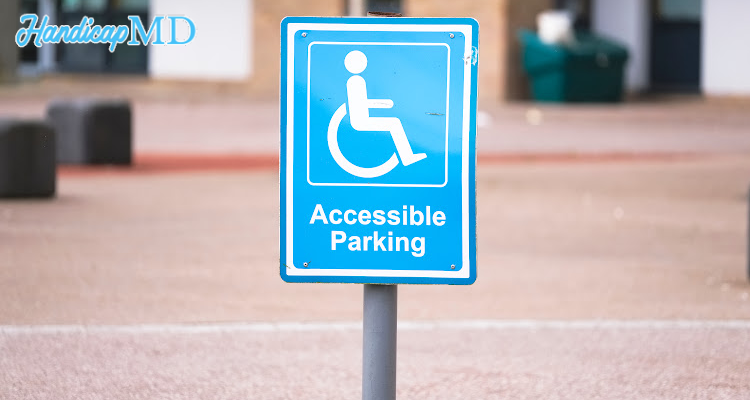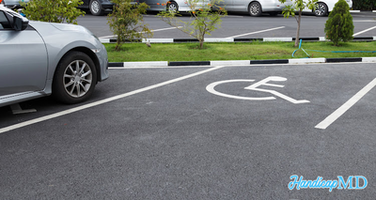
Myths vs. Facts: Debunking Common Misconceptions about Handicap Placards in Hawaii
Introduction
When it comes to placards, there are numerous myths and misconceptions circulating in society. These misunderstandings can lead to confusion and misinterpretation of the privileges and benefits that come with a disability placard in HI. In this article, we aim to clarify and debunk these common myths, providing you with accurate and up-to-date information. By shedding light on the facts, we hope to promote better awareness and understanding of the importance of placards for those who genuinely need them. So, let's dive into the truths and dispel the falsehoods surrounding handicap placards in Hawaii.
Myths vs. Facts: Debunking Common Misconceptions about Handicap Placards in Hawaii
Myth: Handicap Placards Are Only for Wheelchair Users
Contrary to popular belief, permits are not exclusively for wheelchair users. While they do cater to individuals with mobility challenges, they are also intended for people with various disabilities or medical conditions that affect their ability to walk or move for extended periods. Conditions such as heart conditions, respiratory problems, severe arthritis, and other disabilities that may not be immediately apparent can also qualify individuals for disabled parking permit.
In fact, the Department of Motor Vehicles (DMV) in Hawaii considers a broad range of medical conditions when evaluating eligibility. It is essential to understand that not all disabilities are visible, and the permits exist to support and accommodate those in need, regardless of their specific mobility aid requirements.
Myth: Handicap Placards Are Easy to Obtain Fraudulently
One common misconception is that obtaining a handicap permit is an easy process, making it susceptible to abuse and fraudulent use. While there have been isolated cases of misuse, state authorities are vigilant in their efforts to prevent fraud and misuse.
In reality, the application process in Hawaii is thorough and stringent. Applicants must provide substantial medical documentation and a valid prescription from a licensed healthcare professional. These documents help verify the individual's medical condition and need for a permit. Additionally, these have an expiration date, requiring regular renewal and re-evaluation to ensure continued eligibility. Penalties for fraudulent use are severe, discouraging potential misuse of these essential resources.
Myth: Handicap Placards Are Only Valid in Hawaii
Another common misconception is that permits issued in HI are only valid within the state's borders. This belief can deter visitors with disabilities from utilizing their permits during their trips to HI.
The truth is that most states in the United States have reciprocal agreements regarding permits. HI honors valid permits from other states, and reciprocally, other states acknowledge Hawaii-issued permits. These agreements enable individuals with disabilities to access accessible parking spaces and other benefits regardless of their travel destination within the United States.
Myth: Handicap Placards Are Only for Drivers
A prevalent myth surrounding disability permits is that they are exclusively for drivers with disabilities. In reality, permits serve not only drivers but also passengers with disabilities. If a person with a valid pass is riding as a passenger in a vehicle, they can still make use of the parking benefits and other accommodations offered to authorized holders.
Furthermore, even non-drivers, such as individuals reliant on public transportation or those who primarily use mobility aids like wheelchairs, can benefit greatly from having a permit. It provides accessibility and convenience when accessing public facilities, parking lots, and other designated areas.
Myth: Handicap Placards Are Lifetime Issuances
Some individuals mistakenly believe that once they are granted a handicap placard, it remains valid for life, regardless of any changes in their medical condition.
The truth is that they come with an expiration date. The duration of validity varies depending on the individual's medical condition and the type. Temporary disabilities may warrant a shorter validity period, while more permanent conditions can lead to a more extended expiration date.
After it expires, the individual must reapply and undergo re-evaluation to ensure they still meet the eligibility criteria. This process ensures these are issued to those who genuinely need them at any given time.
Myth: Handicap Placards Are Not Meant for Young Individuals
There is a common misconception that these are primarily for elderly individuals. This belief can lead younger people with disabilities to hesitate in applying for one, assuming they might not qualify.
In reality, passes are intended for individuals of all ages who meet the eligibility requirements. Age is not a determining factor for an issuance. The criteria focus on the individual's medical condition and how it affects their mobility, irrespective of their age.
Young individuals with disabilities can benefit immensely from having a pass, as it enables them to access suitable parking and facilities, making their daily lives more manageable and enjoyable.
Frequently Asked Questions (FAQs)
Can I Apply for a Disability Pass Online?
Yes, the DMV in HI allows individuals to apply for online. The process typically requires submitting the necessary documentation and a completed application form through the official DMV website.
Is There a Fee for Obtaining a Disability Pass?
As of last update in September 2021, there was no fee for obtaining a handicap placard in Hawaii. However, it is essential to verify with the DMV as fees and regulations may change over time.
Can I Use My Out-of-State Disability Pass in HI?
Yes, HI recognizes valid passes from other states and vice versa. If you possess an out-of-state pass, you can use it in HI during your visit.
What Should I Do If I Notice Misuse of a Disability Pass?
If you suspect someone is misusing a pass, you can report it to the local law enforcement or the DMV. They take such reports seriously and will investigate the matter to prevent abuse.
Are Disability Passes Transferable Between Vehicles?
Yes, they are transferable between vehicles. However, they must only be displayed when the authorized owner is in the vehicle. It should not be used when the owner is not present.
Can a Disability Pass Be Used in Private Parking Lots?
Private parking lot policies may vary, but in general, permits are valid in private lots that have designated accessible spaces. However, it is essential to abide by individual lot regulations and restrictions.
Conclusion
Understanding the truth behind handicap placards in Hawaii is crucial to fostering an inclusive and supportive environment for individuals with disabilities. By debunking common myths and presenting accurate information, we can promote empathy, respect, and accessibility for everyone in society. Disability passes play a significant role in enhancing the quality of life for those with mobility challenges, and it is our collective responsibility to ensure their proper use and appreciation.
So, the next time you see a vehicle displaying a disability tag, remember that it represents the unique needs of someone with a disability. Let's work together to create a more understanding and accommodating community for everyone, regardless of their abilities.
.png)






